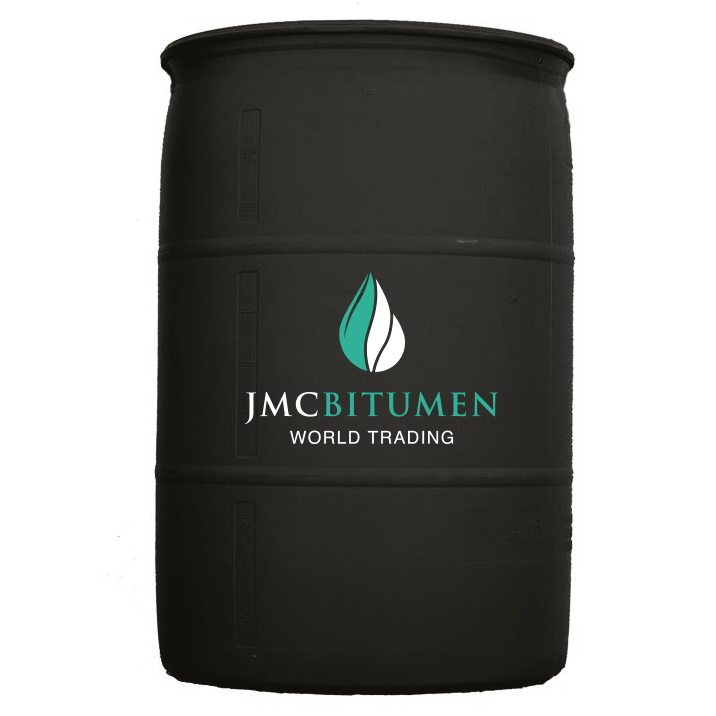
Superior Quality: Non mixed, no modified, 100% pure Bitumen
JMC BITUMEN THE LEADING AFRICAN SUPPLIER OF BITUMEN

Certification: ISO, OHSAS and SGS Certified
JMC BITUMEN THE LEADING AFRICAN SUPPLIER OF BITUMEN

Price: Most competitive, Value-for-Money rates
JMC BITUMEN THE LEADING AFRICAN SUPPLIER OF BITUMEN

Customer Service: 100% of well-served satisfied customers worldwide
JMC BITUMEN THE LEADING AFRICAN SUPPLIER OF BITUMEN

- PENETRATION BITUMEN 30/40
- PENETRATION BITUMEN 40/50
- PENETRATION BITUMEN 60/70
- PENETRATION BITUMEN 85/100
- PENETRATION BITUMEN 100/120
- BLOWN BITUMEN R90/15
- BLOWN BITUMEN R85/25
- CUTBACK BITUMEN MC250
Usage
The vast majority of refined bitumen is used in construction primarily as a constituent of products used in paving and roofing application. According to the requirements of the end use bitumen is produced to specification. This is achieved either by refining process or blending.
It is estimated that the current world use of bitumen is approximately 102 million tons per year. Approximately 85% of all the bitumen produced is used as binder in asphalt for roads. It also used in order paved areas such as airport runways, car parks and footways.
Typically, the production of asphalt involves mixing sand, gravel and crushed rock with bitumen, which acts as the binding agent. Other materials such as polymers may be added to the bitumen to alter its properties according to the application for which the asphalt is ultimately intended.
A further 10% of global bitumen production is used in roofing applications, where its waterproofing qualities are invaluable. The remaining 5% of bitumen is used mainly for sealing and insulating purposes in a variety of building materials such as pipe coatings, carpet tile backing and paint bitumen is applied in construction and maintenance of:
- Highways
- Airport runways
- Footways/pedestrian ways
- Car parks
- Racetracks
- Tennis courts

WHAT IS BITUMEN
Bitumen is an oil based substance. It is a semi-solid hydrocarbon product produced by removing the lighter fraction such as liquid petroleum gas, petrol and diesel from heavy crude oil during the refining process. As such, it is correctly known as refined bitumen. In North America, bitumen is commonly known as Asphalt Cement or Asphalt. While elsewhere Asphalt is the term used for a mixture of small stones, sand, filler and bitumen, which is used as a road paving material. The asphalt mixture contains approximately 5% bitumen. At ambient temperature bitumen is stable, semi-solid substance.
COMMON MISUNDERSTANDINGS
Petroleum bitumen is often confused with tar. Although bitumen and coal tar similarly black and sticky, they are distinctly different substance in origin, chemical composition and in their properties. Coal tar is produced by heating coal to extremely high temperatures and is a by-product of gas and coke production. It was widely used as the binding agent in road asphalt in the early part of the last century, but has since been replaced by refined bitumen.
Bitumen is also sometimes confused with petroleum pitch which, although also derived from crude oil, is substance produced by a different process from that used for refined bitumen. Petroleum pitches are the residues from the extreme heat treatment or “cracking” of petroleum fraction. Their properties and chemical composition are therefore quite different from those of bitumen. Naturally- occurring bitumen, sometimes also called natural asphalt, rock asphalt, lake asphalt or oil sand, has been used as an adhesive, sealant and waterproofing agent for over 8.000 Years. But it occurs only in small quantities and its properties are quite different from refined bitumen.

About
JMC Bitumen company products are according to Bahrain National Standard Certificate. Via establishing QC Management method ISO900:2008 and European Standard, CE, in production, JMC Bitumen fellows the reliable standard factors such as ASTM, EN, etc.

Certificate of origin
Country of origin: Bahrain; we provide certificate of origin from Bahrain chamber of commerce industries and Mines as part of International trade network, showing name and address of JMC Bitumen World Trading.











